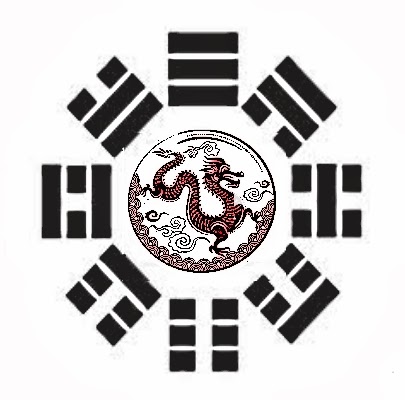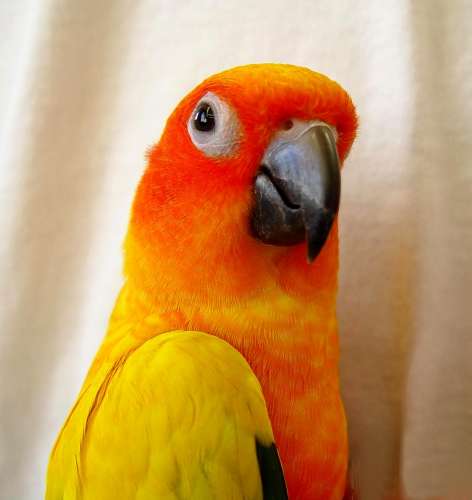I don't have an answer to that question, but I was recently challenged with it by my teachers. It is something that, as I talk about it, meditate on it and engage in all sorts of Buddhist froufrah about figuring out how -to -not-answer-questions- that -have -no- answer -but- using -the -process- to-gain-a-deeper-understanding-of -what -is-really-involved-in-the-question kind of hobbies Buddhist find funner than say...watching the latest episode of Orange is the New Black... starting some very interesting and thoughtful dialogues around me. I am grateful to have been tasked with this hua tuo, because it is bringing life into focus swiftly.
With a hua tuo, a question is asked that the person seeks not to answer, but to understand its full nature and the fullness of the nature of its parts. Classic examples are "Who is chanting the Buddha's name?" or "Who is dragging this corpse around?" They are not reccomended for novices as they require a degree of insight and then practical training that can be daunting and what will happen is the novice will declare they have an answer and there is nothing more to think about. In a nutshell, good questions lead to a deeper understanding of the transient nature of life and how each of us requires delusion to survive. It is the revelation of the delusion one seeks, knowing that all that can lie underneath is yet more delusions.
So what you do, let me correct that, let me tell you how I am approaching this one. I wrote the question down on a piece of paper and I sealed it in an envelope. There are lots of qualifiers about the question and how things should be defined etc and so forth but none of that gets written down because it isn't important and they aren't true. When we say words like "compassion" or "love" they have no meaning because they have so many possible meanings. To understand the fulllness of the questions you must be able to sit with all the levels and possible definitions of each word. This is something western philosophers run from because without a declared boundary and meaning; theories and bias just don't work. The hua tao is a means of teaching one to reach a space beyond understanding and witout definition because all definitions are just made up to suit the moment, era, and so forth anyway.
I wrote a date on the envelope that is 28 days from the day I sealed it. I propped it in a prominent place where I must always see the envelope and date. For the next 28 days, every day for one hour, I am engaged in performing 14 intensive exercises - including situps and pull ups - its not mystical, its about physical discipline. I am working to correct my diet and drink more water. I follow my exercises by a period of seated meditation in which I watch the finches and mindfully focus on my breathing and...the finches.. As I move throughout my day, I do readings from several sutras and texts.
I never think about the question directly. I don't worry it like a dog does a bone or sit and think it through. If you have been around the meditation world much you know that thinking is the first sign that things are going off track. You can justify anything. Confirmation bias rules and the brain would really really prefer to go onto the next shiny thing so it will skip details. I don't sit down and logically process it, I just keep it in the forfront of my awareness and in doing so, am becoming more aware of so many other things beyond the consideration of myself. I don't have a series of related readings to pursue because confirmation bias means I wouldn't see the whole text anyway. I am just returning to some core sutras, mostly the diamond sutra. I do not know what I will find on the 28th day when I open up that envelope because the other part of it all is that when I wrote down the question, I also write down what I really wish the answer was and what I most fear the answer will be. You do this understanding there is no answer to this question, but you are acknowledging the rules of surety you have written inside you that truly color your perception.
To work a hua tuo is life changing on many levels. Frankly, it is a pain in the ass and annoying. It interferes with plans, casts everything into question and makes you feel like there is just the slightest veil between you and the rest of the world. It is also the most wonderful and calming thing to do. Even in the depths of the processs, there is this beautiful sensation of peace and placement that is just....amazing. Oh and one other thing, one of the reasons that the practice is reserved for advanced students is there is magic involved - the kind of magic that is noticable and unnerving to people around you but that is a powerful reminder that we know not where we are. Magic that is to be noticed but not given more weight than a passing cloud.
The mad kitten had an absolute nuclear meltdown the other day. Screaming, biting, kicking, attacking me, attacking the fish tank (that she rarely even acknowledges), pushing things over, biting cords. I have never seen anything like it. She would run from thing to thing misbehaving and then run to the food bin and slap it like she normally does when she wants a treat. I turned everything off and just lay down on the floor after putting up with this for 45 minutes and she ran over and curled into me and passed right out.
So I cancelled all my appointments, got a kitty wheat grass salad plant for her and spent almost all weekend with the computers off and righting her world. Not only have the finches arrived and people shifted from fawning over her to barely notcing her in the glare of finch cuteness but I have been so busy I can barely breathe. I haven't played with her in almost two weeks and she finally had it.
You can't always do what you want to do or live the way you ideally want to live, but you can choose to take time out and put back to the rights something that suffered and then work harder to not let that happen again.





